Happy Tuesday! By critical consensus, the two of the year’s best rap albums are “Let God Sort Em Out” by Clipse and “God Does Like Ugly” by J.I.D. Is there something to the fact that both have religious references in the title? God knows.
Quick Hits: Today’s Top Stories
- President Donald Trump announced at a White House news conference on Monday that he would he would activate the District of Columbia National Guard and, separately, assume temporary control of Washington’s Metropolitan Police Department for 30 days in order to “rescue our nation’s capital from crime, bloodshed, bedlam, and squalor, and worse.” The president has the authority to activate the D.C. National Guard, but under the 1973 D.C. Home Rule Act the president may only command the police department if he “determines that special conditions of an emergency nature exist which require the use of the Metropolitan Police force for Federal purposes.” In an executive order issued Monday, Trump declared a “crime emergency” in D.C., a claim the city’s attorney general, Brian Schwalb, quickly refuted. Meanwhile, Mayor Muriel Bowser said she would comply with the executive branch’s order, which she called “unsettling and unprecedented.”
- Chip manufacturers Nvidia and AMD have agreed, in an unprecedented arrangement, to pay the U.S. government 15 percent of their revenue on sales to China, notably from Nvidia’s H20 and AMD’s MI308 chips. The sales of such chips, used for AI development, had been barred for national security reasons, but the White House reversed course in July, prompting a group of security specialists to write a letter to U.S. Commerce Secretary Howard Lutnick warning that, while Nvidia's H20 chips were primarily purchased by civilian companies, they expect them to be used by the Chinese military. Nvidia CEO and founder Jensen Huang agreed to the 15 percent cut in a White House meeting last Wednesday, with the Commerce Department starting to grant licenses for chip sales on Friday.
- President Trump signed an executive order on Monday extending the U.S.-China tariff truce for another 90 days, pushing the deadline to November 10. The extension came just hours before the original pause was set to expire Tuesday, which would have returned U.S. duties on Chinese goods to at least 54 percent and Chinese tariffs on American exports to at least 34 percent. Trump also announced on Truth Social that gold would be exempt from tariffs, presumably to the great relief of White House decorators.
- In a Truth Social post Monday night, President Trump said he would nominate E.J. Antoni as the new commissioner of the Bureau of Labor Statistics. Antoni serves as chief economist at the Heritage Foundation's Grover M. Hermann Center for the Federal Budget. The nomination follows Trump's dismissal last week of former President Joe Biden-appointed BLS Commissioner Erika McEntarfer after Trump alleged recent jobs report numbers were “manipulated for political purposes.” Antoni criticized the bureau’s data collection processes in an X post last week. His nomination will require Senate confirmation.
- During a press conference on Monday, Philippine President Ferdinand Marcos Jr. repeated his assertion that his country would inevitably be drawn into any Taiwan conflict, however hesitantly, citing geographic proximity and the estimated 160,000 overseas Filipino workers living in Taiwan. His comments mark the latest hike in tension between China and the Marcos administration, which has sought to strengthen security arrangements between itself and Japan, Australia, India, and some EU member states, while notably criticizing China’s increasingly aggressive activity in the South China Sea. Marcos made a similar statement during a trip to India in July, prompting the Chinese Foreign Ministry to accuse him of interfering with domestic Chinese policy.
- Miguel Uribe, the Colombian senator and 2026 presidential hopeful who was shot at a political rally in June, died Monday after two months in critical condition in the ICU. Uribe —a popular leader in the country’s conservative Democratic Center party, and notable opponent of the current leftist government— was shot three times in Bogotá while giving a campaign speech in a park in June. The shooting was a worrisome reminder of the political violence that ravaged Colombia during the Pablo Escobar days of the 1980s and ’90s. Uribe came from a politically involved family: His grandfather was the president of Colombia from 1978 to 1982, and his mother was killed during a Medellín Cartel kidnapping in 1991.
- Judge Paul A. Engelmayer rejected the Trump administration's request to unseal grand jury materials from Ghislaine Maxwell’s sex trafficking case. In a 31-page decision released Monday, the judge wrote that the materials lack historical or public interest, and that the Department of Justice's premise of transparency was “demonstrably false” as the testimony contained minimal information that was not already in the trial record. Engelmayer further stated that releasing the transcripts would constitute a departure from the traditional confidentiality of grand jury proceedings, warning that doing so "casually or promiscuously" could erode trust among individuals who might be summoned to testify in future grand jury investigations.
- Ford CEO Jim Farley announced in a livestreamed event on Monday that the company planned to spend $2 billion to transform its Louisville Assembly Plant for affordable electric vehicle production, in what the company labelled its “Next Model T Moment.” The automaker is abandoning the moving assembly line system established by founder Henry Ford 112 years ago in favor of a three-branched "universal production system" that the automaker said will increase production speed by 15 percent. Farley stated that the plant will produce a mid-sized pickup truck with a $30,000 base price starting in 2027, though the transformation will reportedly reduce the Kentucky plant’s workforce from 2,808 to 2,200 hourly workers.
- Intel CEO Lip-Bu Tan met with Trump at the White House on Monday, hoping to assuage the president’s concerns about his ties to Chinese companies. Last Thursday, the president called for the executive’s resignation, saying Tan was “highly CONFLICTED,” following reporting that Tan had invested in hundreds of Chinese companies, including eight with ties to China’s army. After the meeting, Trump said on Truth Social that his Cabinet members and Tan will “spend time together” next week and “bring suggestions” for him to review, while also praising the Intel executive’s “success and rise.” Intel’s share price increased 3.5 percent by the day’s end, after tumbling on Thursday.
Russia, Ukraine, and a Meeting in Alaska
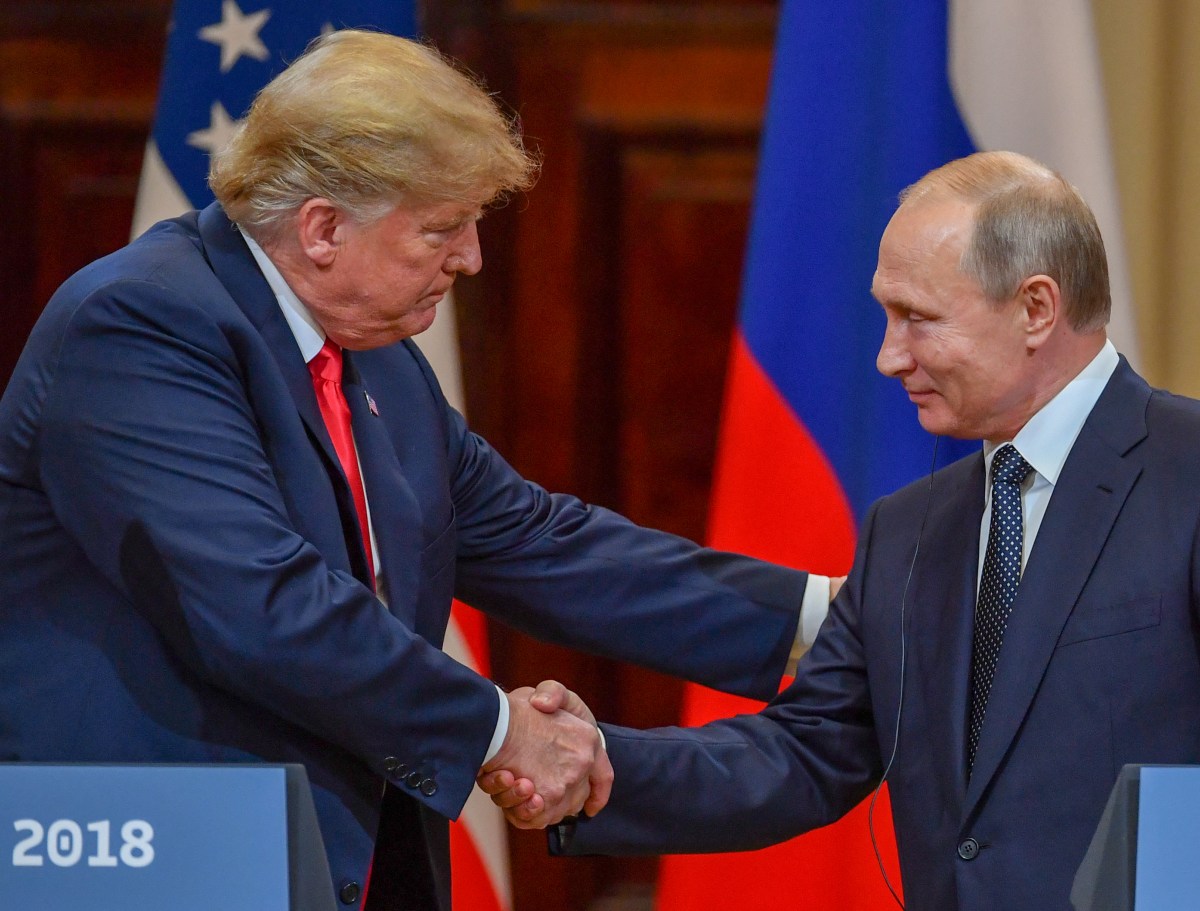
The long-awaited meeting between U.S. President Donald Trump and Russian President Vladimir Putin to discuss the Ukraine war is finally happening on Friday in Alaska—but aside from the date and state, the details are entirely up in the air.
As the Russian president heads to meet with his American counterpart, who has promised to end the ongoing conflict through negotiation, Russian forces are slowly grinding forward on the battlefields of eastern Ukraine. But Kyiv, with the support of its European backers, has resolved to fight on in defiance of any agreement struck without the input of its leaders, who reject outright the prospect of giving up any territory that Russia doesn’t currently occupy.
More than three years into the war, it’s now clear that Russia is extremely unlikely to achieve its maximalist war aims of conquering vast swaths of Ukraine and installing a puppet government. But it is equally clear that Ukrainian forces will most likely be unable to fully eject Russian forces from their country, as manpower and weapons shortages take their toll.
Though this week’s negotiations could determine Ukraine’s fate, they’ve come together with very little input from Ukraine President Volodymyr Zelensky. Last week, White House special envoy Steve Witkoff met with Putin at the Kremlin, returning with a ceasefire offer from the Russian president: Ukrainian troops would withdraw from the eastern regions of Donetsk and Luhansk, Russia’s 2014 conquest and annexation of the Crimean Peninsula would be internationally recognized, and in return, Russian forces would agree to a full truce.
The pitch was good enough for Trump to set a date for negotiations, although he cautioned that it was not a “breakthrough.” The president agreed to hold off on imposing threatened sanctions on Russia, which were set to take effect last Friday, and scheduled a meeting in Alaska for the end of this week. It was not, however, good enough for Ukraine and its European allies. After being briefed by White House officials last week on the Russian proposals, European leaders were reportedly unclear on the exact details of the Russian offer. But they were clear that Ukraine had to have a seat at the table.
“Ukraine’s future cannot be decided without the Ukrainians, who have been fighting for their freedom and security for over three years now,” wrote French President Emmanuel Macron on social media Saturday. Later in the week, top European officials presented their own peace proposal to the White House, demanding firm security guarantees for Ukraine—including potential NATO membership—in any postwar settlement.
Zelensky was even more blunt. “Any decisions made against us, any decisions made without Ukraine, are at the same time decisions against peace,” he said in a Saturday video address from the presidential office. “They will bring nothing. These are dead decisions; they will never work.” Zelensky also rejected the suggestion, made by Trump on Friday, that an eventual peace deal could include swapping some Ukrainian territory not controlled by Russia in order to regain occupied lands.
In response, Trump said that he was open to Zelensky’s participation in a future meeting, even if the Ukrainian leader would not attend the Alaska summit. It was a marked shift from Trump’s rhetoric earlier in his term, when he repeatedly blamed Ukraine for starting the war and expressed reluctance to impose more sanctions on Russia. But faced with Russian intransigence in negotiations, Trump threatened to impose sanctions on countries that buy Russian oil, a critical source of revenue for Moscow, starting August 8—a deadline that has now been moved to August 27.
On Sunday, Vice President J.D. Vance told Fox News that while Putin had initially refused to meet with Zelensky, “the president has now got that to change.” He also claimed that the U.S. was discussing “scheduling and things like that around when these three leaders could sit down and discuss an end to this conflict.”
But even as diplomatic deal-making accelerates, Russian troops continue to steadily advance in eastern Ukraine, gaining roughly a few dozen square miles per week. “They’re advancing faster than they were this time last year,” Rob Lee, a senior fellow at the Foreign Policy Research Institute who recently returned from a tour of the Ukrainian front, told TMD. Lee noted that Russia has significantly improved its tactics and drone capabilities, integrating drone teams, like the elite Rubikon unit, with small-unit infiltration tactics to penetrate Ukrainian lines.
Kyiv is also facing an acute manpower shortage. Spread thin along a long defensive front, the Ukrainian Army is struggling to recruit or conscript enough troops for the infantry, as many Ukrainians balk at the long tours of duty now required on the frontline. “It creates this potentially vicious cycle,” said Lee. “It’s really important that Ukraine can improve the way they’re recruiting and employing infantry, because that’s still the biggest challenge on the frontline.”
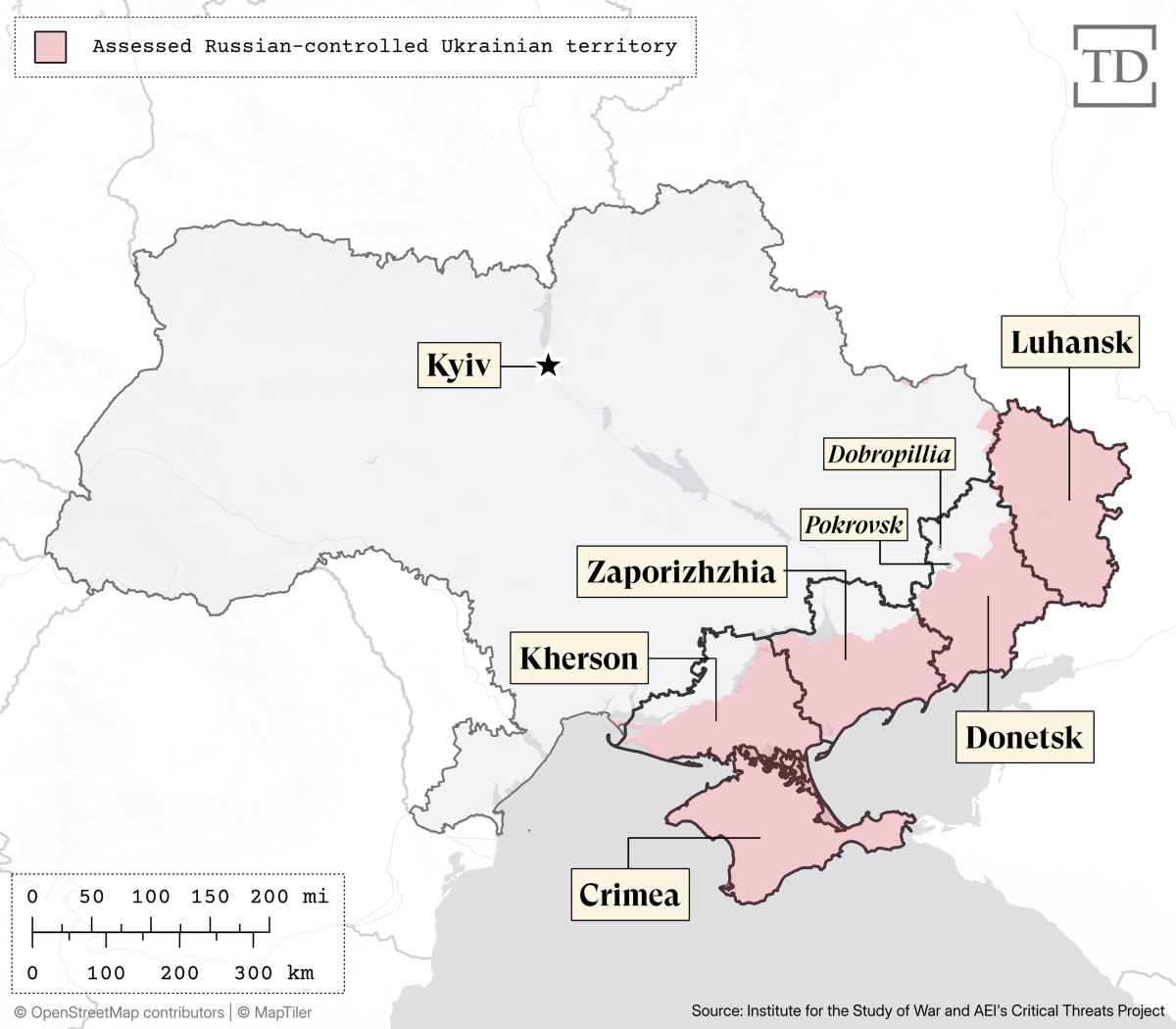
In some places, according to some experts and former soldiers, a dozen soldiers can be responsible for up to six miles of frontline, making Russia’s infiltration tactics that much more effective. Russia has also massively expanded its recruitment and conscription efforts from earlier in the war: Moscow now claims that it has more than 600,000 troops deployed in Ukrainian territory, compared to Ukraine’s 300,000 frontline troops.
Ukraine has attempted to close the gap, lowering the draft age to 25 to 27 last year, granting amnesty to AWOL soldiers who return to their units, and increasing the financial incentives for volunteers. However, early efforts have had mixed results.
And concerning developments emerged along the frontline on Monday afternoon. In Donetsk, Russian forces broke through Ukrainian lines east of the town of Dobropillia, near the strategically important city of Pokrovsk. “This might be a tactical breakthrough,” noted Lee, although it remained to be seen whether the Russian Army could convert the roughly six-mile salient into a lasting gain. If they succeed, the chances of Russia occupying most of the Donbas by year’s end will rise.
But the Ukrainian armed forces are far from collapse. Even if Russia succeeds in taking the rest of the Donetsk and Luhansk regions, Lee noted, their fall is unlikely to have a domino effect on the rest of Ukraine. And Ukraine has continued to carry out smaller-scale versions of its daring long-range drone strikes on Russia’s heavy bomber fleet in June. On Sunday, Ukrainian drones struck an oil refinery in Russia’s Komi Republic, more than 1,200 miles from the border.
Meanwhile, the Ukrainian public remains opposed to making major concessions to Russia. While 69 percent of Ukrainians now favor seeking a negotiated end to the war as soon as possible, 52 percent oppose ceding territory to Russia, with that number rising to 78 percent when asked about territory that Russia does not currently occupy. “Ukrainians are a nation that does not trade its own territories,” wrote former Ukrainian President Petro Poroshenko on Facebook last week.
But Russia has its own reasons for fighting on, Nicholas Fenton—an associate director for the Europe, Russia, and Eurasia Program at the Center for Strategic and International Studies—told TMD. “At the current level of sanctions pressure, the current level of battlefield intensity, the Russians can continue to fight on,” he said, with their army sustained by massive recruitment efforts and their economy buoyed by military spending.
Putin, therefore, may simply be using the Alaska talks as a way to buy time, Fenton noted. “He’s a former KGB agent,” he said. “He’s going to want to try to flatter Trump into some sort of degree of satisfaction with the results of the summit and keep him on side.” Trump has certainly displayed a predilection for splashy diplomatic summits in the past, and might be mollified by the perception that Putin is engaging in the peace process, even as Russian forces press forward in Ukraine. The White House already has refrained from enacting more sanctions on Russia, and, on Sunday, Vance—long an advocate for limiting U.S. involvement in Ukraine—stated that the U.S. was “done with the funding of the Ukraine war business,” although he noted it would still sell arms to Europe that would be used by Ukraine.
Vance’s boss also signaled on Monday that the U.S. might be ready to wash its hands of the war. “At the end of that meeting, probably the first two minutes, I’ll know exactly whether or not a deal can be made,” Trump told reporters, calling the Friday summit a “feel-out meeting.” If Putin doesn’t seem amenable to a deal, which he claimed would include land swaps, Trump said that he may tell the Russian president, “lots of luck, keep fighting.”
On Monday afternoon, Zelensky predicted the latter outcome. The Russian president “is definitely not preparing for a ceasefire,” Zelensky said on X. “Putin is determined only to present a meeting with America as his personal victory and then continue acting exactly as before.”
Today’s Must-Read
For the last few years, experts have been fighting a battle over the impact of social media on young Americans. On one side of this battle, there were psychologists, like Jonathan Haidt, who has forcefully argued that social media has terrible impacts on young people. As Haidt writes in The Anxious Generation, which has continuously been on the New York Times bestseller list since its release more than a year ago, adolescents have experienced rising rates of anxiety, depression, and self-harm over the past decade. … On the other side of this battle are the skeptics who point to our collective tendency to exaggerate the impact of new technologies, and catastrophize their effects. If you go back through history, skeptics like Tyler Cowen have pointed out, you can find people complaining that there is “something wrong with young people these days” at every historical juncture. … While I always found Haidt’s worries to be plausible, I also felt that we didn’t yet have enough evidence to be confident that things were really as bad as he feared. And then I came across a truly jaw-dropping chart.
Toeing the Company Line
The Other POTUS
(That is, Postmodernists of the United States.)
Truce Process
The Trump-Putin summit isn’t about peace.
What Is the Supreme Court’s Long Conference?
Inside the justices’ marathon meeting that kicks off the term and decides the fate of thousands of petitions.
Abraham Lincoln, Originalist | Interview: Akhil Amar
How our national narrative led to the abolition of slavery.
Worth Your Time
- Andrew Yang must have felt smug as he read a new piece in The Verge, where Dominic Preston reported on the automated grocery-packing warehouse of food delivery service Ocado: “In 2024, OGRP packed over 30 million orders with fewer than 100 arms installed, and by the end of this year Ocado expects to have almost 500 in place. James Matthews, Ocado’s deputy CEO, tells me that right now the arms are able to pack around 40 percent of Ocado’s groceries. The company expects to reach the 80 percent range, partly through the introduction of a range of new endpoint attachments to go along with the current suction cup, from a parallel gripper to a soft, handlike one. That’s not a decade away, either — that’s where they expect to be ‘in the next two or three years.’”
Presented Without Comment
BBC: China Rams Own Warship While Chasing Philippine Vessel
Also Presented Without Comment
Mediaite: J.D. Vance Praises Notorious Far-Right Fake News Site: ‘This Is Why Gateway Pundit Is So Important’
Also Also Presented Without Comment
Associated Press: India’s Top Court Orders Stray Dogs To Be Removed From New Delhi Streets
“In its order Monday, the Supreme Court directed the capital’s civic bodies to immediately initiate the process of capturing 5,000 stray dogs from “high-risk areas” for now and send them to shelters equipped with adequate staff and CCTV surveillance within six to eight weeks.
It is unclear how the court arrived at the figure of 5,000 stray dogs. Various estimates put the number of strays in New Delhi between 500,000 to one million.”
In the Zeitgeist
Robots don’t just pack your groceries—they can also punch you! Beijing is currently hosting the 2025 World Robot Conference, and the main attraction has been its various robot boxing matches. Viewers of the 2011 Hugh Jackman movie Real Steel will be feeling déjà vu. Thankfully, the robots aren’t very impressive fighters, and other conference booths show “clankers” dancing, offering massages, and kicking around a football. China also opened its first robot-operated mall.
Let Us Know
What do you think will come of the Putin-Trump meeting?



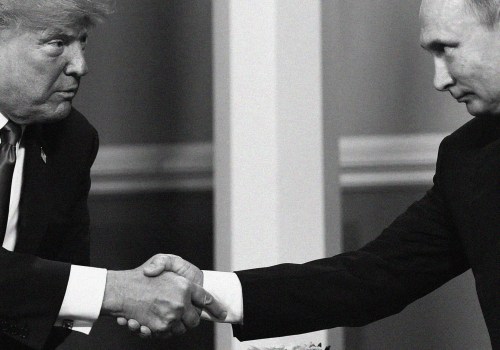
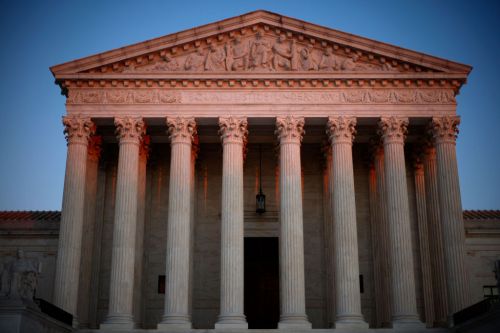







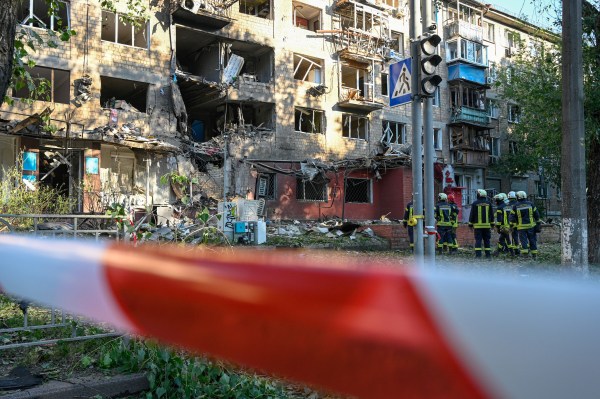
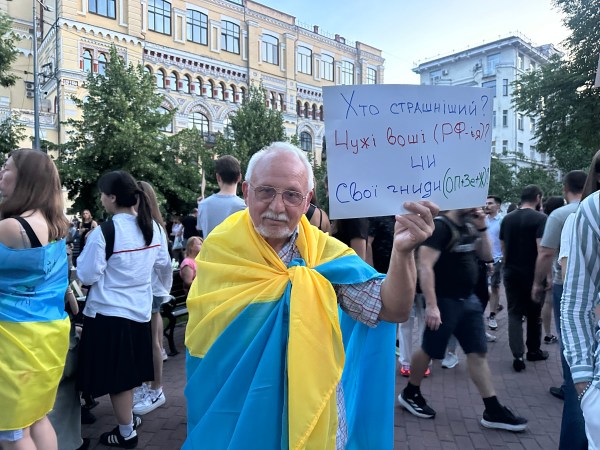

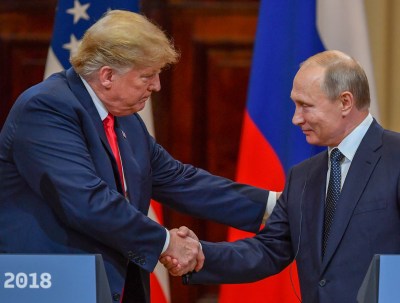
Please note that we at The Dispatch hold ourselves, our work, and our commenters to a higher standard than other places on the internet. We welcome comments that foster genuine debate or discussion—including comments critical of us or our work—but responses that include ad hominem attacks on fellow Dispatch members or are intended to stoke fear and anger may be moderated.
With your membership, you only have the ability to comment on The Morning Dispatch articles. Consider upgrading to join the conversation everywhere.